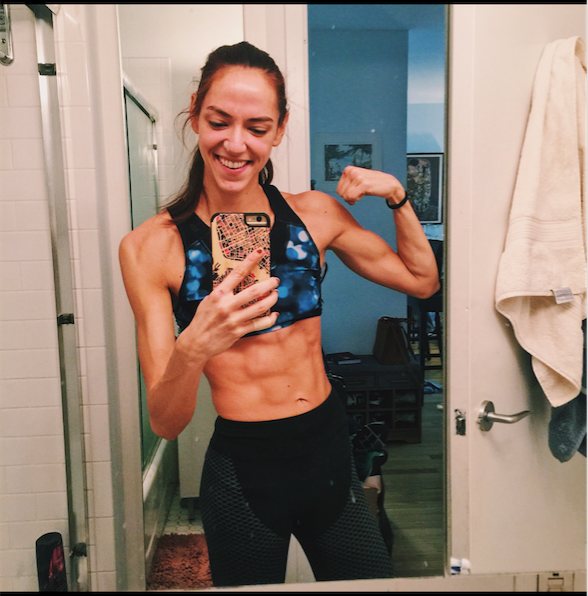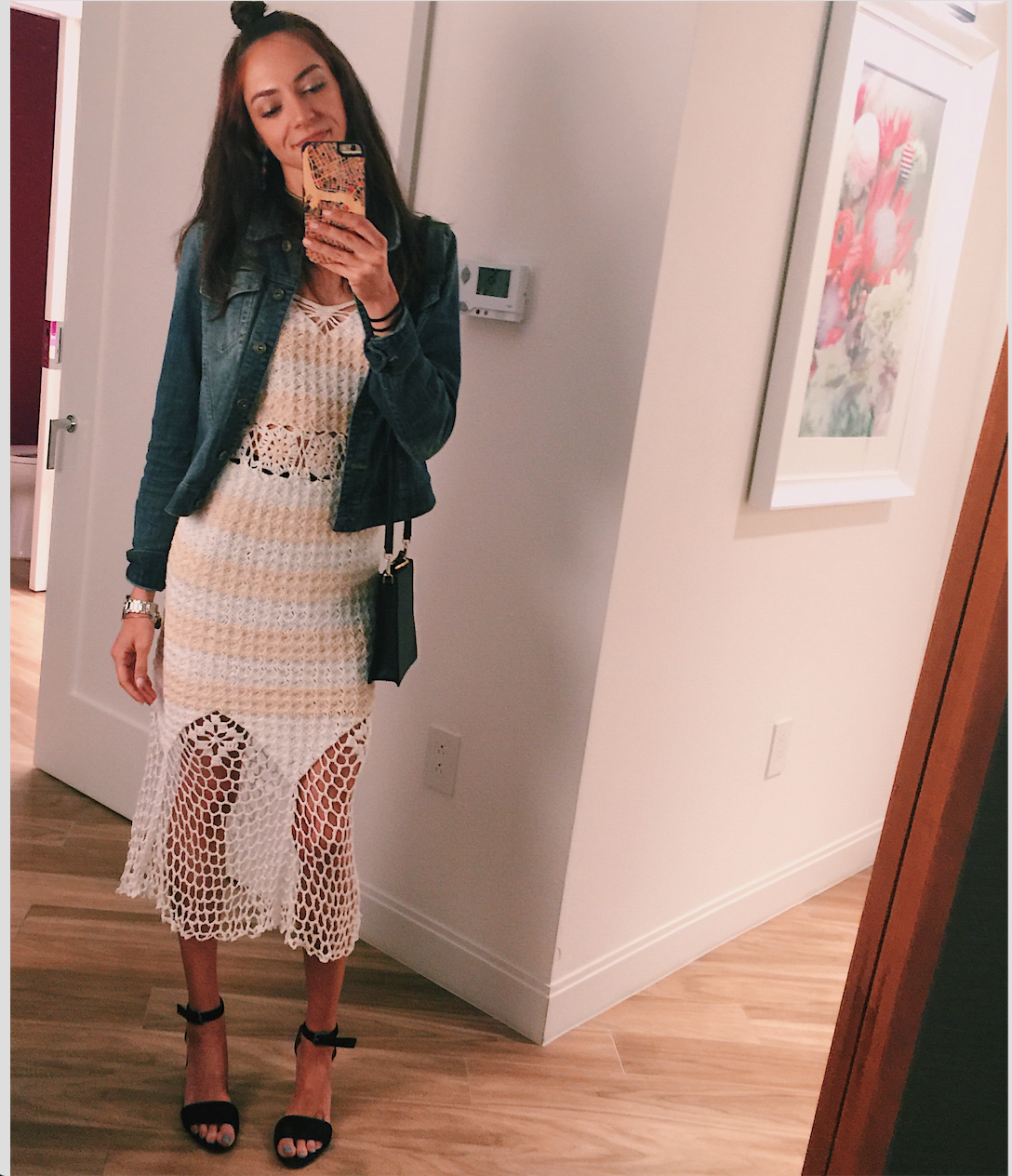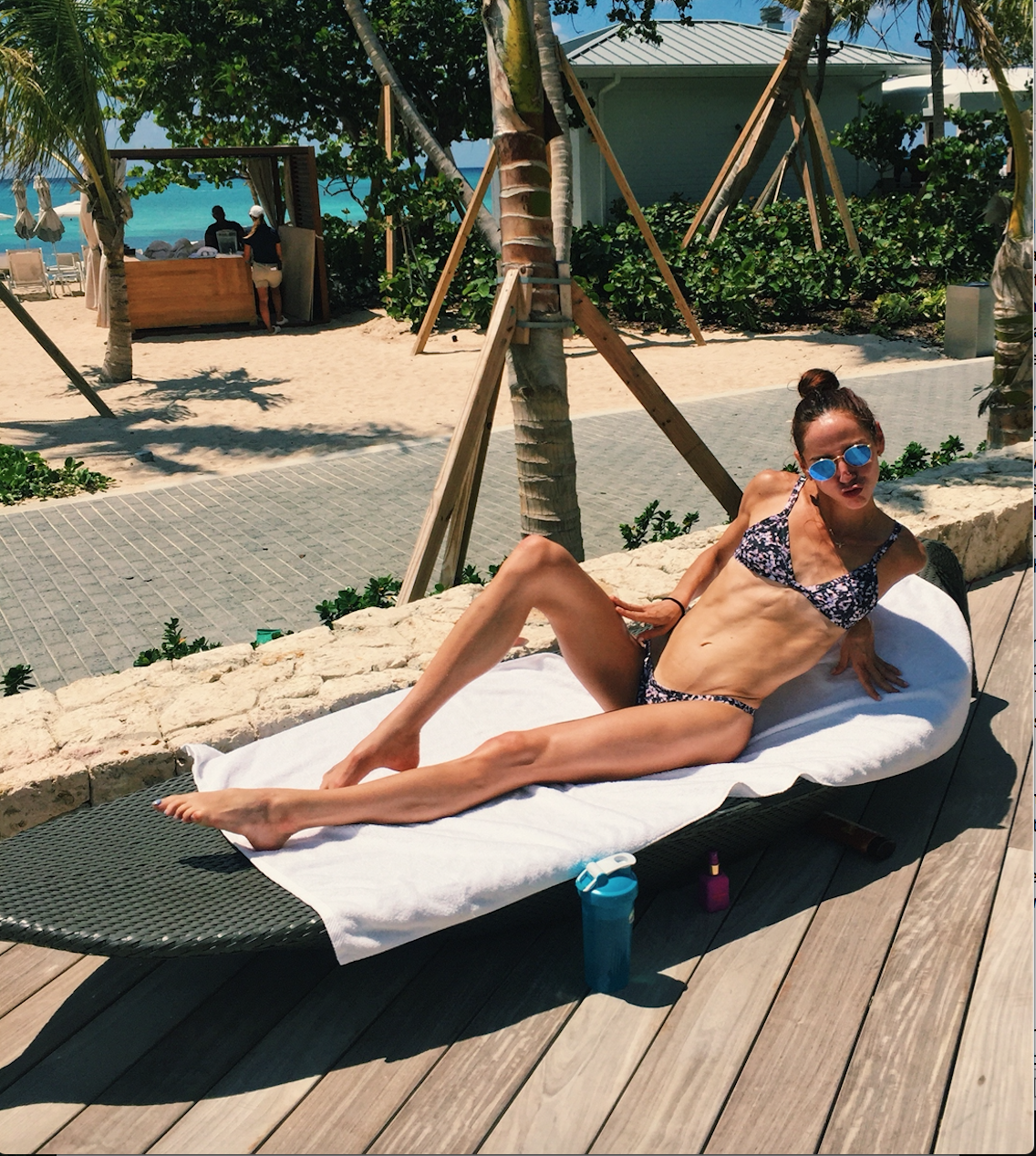The Weaponization of Food (1/2): My Anorexia Diagnosis
In February of 2017, I was diagnosed with anorexia.
I can still remember the moment I got on the scale in my nutritionist’s office. It was my senior year in university; I was finishing my minor in Nutrition & Dietetics and writing my thesis which argued for the transformation of the urban space via David Holmgren’s permaculture principles. In addition, I also worked at a small boutique gym as a NASM-certified trainer in the early mornings and evenings, instructing clients how to properly utilize their bodies to achieve their functional fitness goals. But despite this immersion in all aspects of human health, I refused to acknowledge what was happening to my own body. As the fall semester progressed, my vessel became an asylum of exhaustion, stress, and hunger. Desperate to be noticed for my work in my chosen industry, I decided that I had to “look the part”: an elite, confident, sexy and smart New York “fitness instructor”. But it was because of this that I was here, in a doctor’s office, begging for help. My body could no longer handle the stress and the thoughts running through my mind were menacing. You’ll never be good enough. No one cares about you. You’re disgusting and unnoticeable.I needed someone to help me make it stop: to silence the desire to starve myself, and to exorcise my demons of self-hatred and despair.
And so, peeking down at that scale, I came face to face with my reality. At 22 years old and 5’8”, I was 100lbs.
I looked at my nutritionist with tears in my eyes, ashamed of the mental and physical state I had put myself in, and ashamed that a body so utterly destroyed was standing in front of her. I asked her what this all meant; I asked her if I was going to die. The worst part: she told me that I just might.
When I reflect upon the moments leading up to this event, I find myself searching for a logical solution, as if trying to solve a rubik’s cube or a mathematic equation. But I realize now that a situation such as this—recovering from an eating disorder—is so much more than a conflict simply resolved. The trauma does not suddenly end once you’ve been labeled “recovered”. The journey continues and encounters with pain, frustration, and hopelessness are yet to be endured. This piece is not going to present you with a resounding conclusion or some revelatory declaration of salvation. This story is about starting a dialogue—open, vulnerable, and compassionate—about the weaponization of food.
Through my ED experience, I want to explore how the fitness community manipulates the food we eat in order to exert their own authority and influence. I am using the term “fitness” and not “health” intentionally. Now more than ever, the industry has become flooded with unjustified and uneducated assertions about what we should do to our bodies in order to achieve the image we desire: intermittent fasting, starved cardio, the keto diet…the list goes on to culminate in a series of gimmicks and marketing tactics. But I want to think about the consequences of a body denied the nourishment it needs from emotional, psychological, and physical perspectives. It is clear that food is a multifaceted entity: while it brings satisfaction, joy, and wonder, it is also a trigger for frustration, sadness, and control. But when we don’t talk about this side of the story, what are the consequences?
So many men and women are overstimulated by the various thoughts and opinions swirling around the hypotheses about an ideal human body. When this is taken to an extreme, diet and exercise are no longer pursued for health, but for a narrowly defined aesthetic. For some, myself included, this may spiral into a toxic cycle psychological torment; telling yourself not to eat, to exercise for hours on end, and to never be satisfied with what you see in the mirror. But despite the consistent display of the body both online and in the public sphere, our physical form has never stopped being an awkward topic of conversation. Thus when our bodies are suffering, we seek help from a professional—but in conversations with friends and family, we convince ourselves to stay silent lest we are rejected, chastised, or deemed abnormal. And so the lack of discussion creates an innate ability to venture beyond the vocabulary of “fat” and “skinny”. This is fearfully problematic: the obligation to be one or the other reaffirms our need to strictly define our ways of being in the world—how we appear to others, how we take up space, and how we permit what does or does not go inside our bodies. But I believe that if we expand our vocabulary to start a broader and more inclusive conversation—that if we ask questions and create safe spaces beyond clinics and doctors’ offices—those who are suffering can step out of the darkness, and this dialogue will transform into something great.
I think the worst part of my ED was that I was fully aware of my condition, but without acknowledgement and support from friends and family, I could not bring myself to initiate medical intervention. Nonetheless all the evidence remained in front of me: by December 2016 I could no longer work through simple logic problems or shape cohesive sentences in class; at night, I was sleeping no more than 3-4 hours, my body’s “starvation mode” keeping me awake. Then during the day, my hunger would induce waves of anxiety and stress, causing me to break into random cold sweats while wrapped in an unending sense of panic and doom. I could not even sit down or stand up without wobbling or tripping over my feet, my body’s equilibrium radically disturbed. But the abuse wouldn’t cease. My mind exerted so much control over what I permitted myself to do with my body; despite a smile on the outside, internally I kept telling myself the same story: if you want to be recognized in this industry, you have to look the part; you don’t need to eat that. You haven’t earned it.
Frightened by the consistency of these thoughts, my first step to find help was to hunt for a new therapist. While I had been seeing one I was very comfortable with for just over a year, she was gone on maternity leave. Upon her previous recommendation, I began seeing another in January—but our lack of a solid, foundational relationship prevented any real progress. I finally determined it was time to try harder to get my friends and loved ones to acknowledge me. I needed someone to tell me “I think you need help”, to notice and express genuine concern, love and support for me. Just those four words would make me feel seen for what I was: no longer the Liz they knew, but a girl slowly and painfully wasting away.Stepping out of the shower in my apartment, I would inquire if they thought I looked too thin, searching for validation.
“Oh no, you’re just so skinny!”. They would say.
I wasn’t satisfied. Quickly I assumed this was what they perceived as the “appropriate” response rather than an honest one. so I tried a different strategy.
When shopping, I would put on larger clothes and declare, “This will look nice once I put some weight back on”. That conversation would often be no more than a smile and a nod of the head; maybe even an almost reassuring “yes” followed by some awkward laughter.
I still hadn’t gotten what I needed. I kept these subtle cries for help on repeat, hoping someone would take that step beyond the “fat” and “skinny” dialogue. I was desperate for a friend, but the inability to converse frustrated me; it made me feel as if what I was experiencing was simply overdramatized in my head…maybe I really didn’t look or feel as bad as I thought. Thus I began to invalidate my own thoughts and feelings; I convinced myself that no one cared if I lived or died; that no one—no matter what I did—was really seeing the reality of my body fall apart.
And this is when the next phase of my disorder occurred. Soon enough, I found myself completely dissociated from my body. I came to accept the hunger pangs, the involuntary sweats and shivers, the rapid mood swings. I did not care what my body needed from me; my body was nothing more than a waste of space, and food became unimportant for both my survival and also my enjoyment. In other words: as long as I could keep my six-pack, my chiseled biceps, and my perfectly toned legs, nothing else mattered. I was in the fitness industry, after all; the only purpose of my existence was to present an “ideal” body to the rest of the world. And so the ability to deny myself food became both my superpower and my kryptonite. I took pride in denying myself all the foods I once enjoyed. But I also no longer went out with friends and family for evenings filled with food, drink, and lovely conversation. I ate alone and in private, engaging in an act I perceived as shameful and indulgent. Eating became laborious, a painful chore. And so I wanted nothing more than to disappear, to cease to exist so that I would no longer have to sustain this prison of flesh and blood.
By early April—two months into my diagnosis—my condition was medically defined as “critical”, having only gained another 2 pounds (102). As a result, my nutritionist wanted me to register at an overnight disorder clinic, where my eating would be orchestrated and observed. At this point she was convinced that my ability to deny myself food had become too powerful, and if left to my own devices, I would surely starve.
But I was just one month away from graduating. I had worked so hard and was so close to the finish line; I wasn’t about to let my ED be the bringer of my own demise.
“Please,” I begged her, “Please give me one more shot to beat this. I can put the weight back on, I want to win this fight on my own.”
With hesitation she agreed. But with her faith in me, the work began. First we compiled eating schedules, setting alarms on my phone to go off every 2-3 hours, telling me when to eat. We also wrote “food lists”, an intensely challenging experience.
She would list off various foods and request I tell her which ones “I felt comfortable eating”. Sweet potatoes or pasta? No, too many carbs. Greek yogurt? I don’t want to eat dairy. Nuts?Too caloric. The excuses rolled off my tongue as if they were second nature, as if I had always lived this way. It was then I finally realized how my disorder had completely consumed me; it became my life, transforming my entire world into one of deprivation, oppression, and starvation. Living this way for so long, I questioned whether I could really win this fight, if I could completely reverse my way of thinking. I had to reengage with food not as a weapon of destruction, but a tool that would bring me freedom. I had to relearn how to love, to enjoy, and to simply eat food again.
Weeks went by slowly and painfully. “Food Alarms” would ring, and my body would involuntarily tremble. I still remember sitting in my apartment gazing at my first meal: half a baked sweet potato, brown rice, grilled chicken, and broccoli.
Here we go…
the voice in my head would say.
You’re going to get so fat, you’ve worked so hard and for nothing.
With tears welling up, I threw away the brown rice and turned half a sweet potato into a quarter. I had betrayed my body. Final tally—eating disorder: 1, Liz: 0
It was now May in 2017, my 23rd birthday had just passed. At my weekly appointment, I stepped on the scale to weigh in: 108lbs.
It was small, but it was an accomplishment. Passing 105, I was no longer in “critical condition”. This was the win I needed; I felt hopeful, gaining some momentum to take me further. But then my nutritionist mentioned the trip my sister and I were taking to Japan next month, and the challenges I was going to face. She told me that I would be in situations with food that were going to be completely out of my hands, and that it may cause me to suffer greatly. She described it as an uphill battle, the ultimate exposure therapy. She was right: I could not hide in a country whose cuisine is so central to its history and culture. But I felt ready. I assured her I would eat, that I was going to confront my abuser in my mind and take back the authority over my body. And so at 8pm on May 18th, we left JFK and headed for Japan.
Click here for: The Weaponization of Food (2/2), Your Tool For Change




